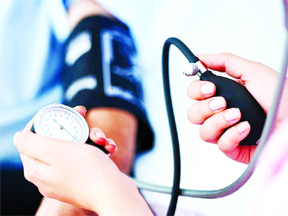
According to research, women aged 45 and more who used oestrogen hormone treatment in tablet form were more likely to develop high blood pressure than those who used transdermal (topically applied to the skin) or vaginal formulations. The findings of the research were published in Hypertension, a peer-reviewed American Heart Association journal. According to the American Heart Association, a woman’s body generates less oestrogen and progesterone after menopause, which may raise her risk for cardiovascular disorders such as heart failure.
Previous research has found that some hormone therapies may reduce cardiovascular disease risk in menopausal women under 60 years old or who have had menopause for less than 10 years. While high blood pressure is a modifiable risk factor for cardiovascular disease, the possible effects of different forms of hormone treatment on blood pressure in menopausal women remain unknown, according to the authors of this study.
“We know estrogens ingested orally are metabolized through the liver, and this is associated with an increase in factors that can lead to higher blood pressure,” said lead study author Cindy Kalenga, an M.D./Ph.D.-candidate at the University of Calgary in Alberta, Canada.
“We know that post-menopausal women have increased risk of high blood pressure when compared to pre-menopausal women, furthermore, previous studies have shown that specific types of hormone therapy have been associated with higher rates of heart disease,” Kalenga said. “We chose to dive deeper into factors associated with hormone therapy, such as the route of administration (oral vs. non-oral) and type of estrogen, and how they may affect blood pressure.” This study involved a large group of over 112,000 women, ages 45 years and older, who filled at least two consecutive prescriptions (a six-month cycle) for estrogen-only hormone therapy, as identified from health administrative data in Alberta, Canada between 2008 and 2019. The main outcome of high blood pressure (hypertension) was identified via health records.
First, researchers investigated the relationship between route of estrogen-only hormone therapy administration and risk of developing high blood pressure at least one year after starting the treatment. The three different routes of hormone therapy administration were oral (by mouth), transdermal and vaginal application. Additionally, researchers evaluated the formulation of estrogen used and the risk of developing high blood pressure. For this study, the researchers reviewed medical records of individuals taking estrogen-only hormone therapy.





Be the first to comment